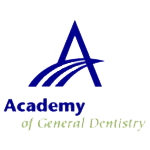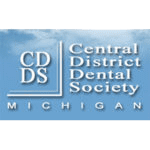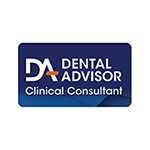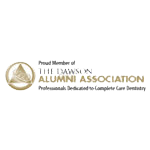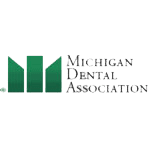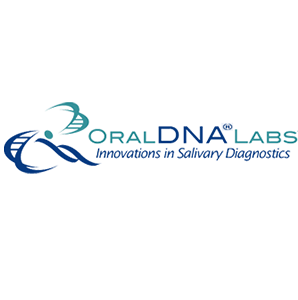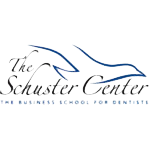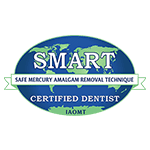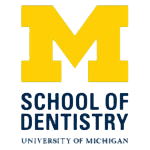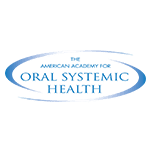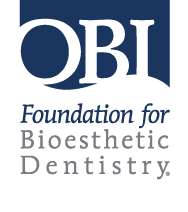
TMJ/TMD FAQs for Lansing Patients
What is TMJ?
TMJ is an acronym that refers to the temporomandibular joint. The TMJ acts as a hinge, connecting the jaw to the temporal bones of the skull. There is one TMJ on either side of the jaw. TMJ is also a term that’s often used to characterize dysfunction or disorder.
What is TMD?
TMD is an acronym that refers to temporomandibular joint disorder. TMD can have a myriad of different symptoms that are related to the jaw and the supporting structures such as the face, ears, neck, shoulders, and upper body.
What are the symptoms of TMD?
There is often a wide range of cascading symptoms that can be tied directly and indirectly to TMD. Some of the more common symptoms include facial pain or tenderness, headaches, limited mobility when opening the mouth, locked jaw, clicking or popping noises from the jaw joint, pain throughout the neck, shoulders, and/or upper body, dizziness, painful chewing, and more. Learn more about the various symptoms caused by TMD here.
What causes TMD?
TMD is a complex condition that can be caused by numerous contributing factors. Bruxism (teeth clenching), jaw grinding, head trauma, arthritis, poor genetics, chronic gum chewing, bad posture, chronic stress, and more can increase your risk for TMD.
Can TMD cause headaches?
There are many conditions that can cause headaches. One of the common symptoms of TMD is headaches. One of the leading causes of TMD is chronic stress– stress can lead to teeth clenching which impacts the TMJs by putting undesirable pressure on them. This can create an unfortunate vicious cycle of pain, muscle spasms, and headaches which all impact your TMJ health.
Can TMD treatment prevent my headaches and/or the ringing in my ears?
There is a strong correlation between TMD, ear ringing, as well as chronic headaches. Many of our patients experience considerable relief from ear ringing and headaches after receiving the right TMJ/TMD treatment. However, there is no guarantee that treatment will completely prevent this.
Can TMD treatment stop my facial pain?
Yes, each phase of our individualized TMJ/TMD treatments is engineered to provide relief from chronic pain while also improving the stability of your complex chewing system. When a patient has completed their TMJ/TMD treatment, any facial pain caused by poor TMJ health should be prevented. If a patient is still experiencing facial pain once TMJ/TMD treatment has been successfully completed, there may be another underlying issue at hand. Please speak to Dr. Bechtel and our team to evaluate what’s behind your facial pain.
If my jaw joints pop, does that mean that I have TMJ/TMD?
If you are experiencing popping jaw joints, this could be an indicator that you have TMD. Experiencing this symptom alone isn’t enough to determine a proper diagnosis. TMD is a complex disorder so we’ll need to conduct a comprehensive examination in order to provide conclusive results. Intermittent jaw joint clicking is actually quite common, so don’t let this alarm you. The only way to determine if you have TMD is via oral examination from a TMJ expert. If you are experiencing popping jaw joints in addition to other possible TMD symptoms, we recommend making your dental appointment as soon as possible.
How is TMD diagnosed?
TMD can have a myriad of symptoms making it difficult to diagnose. The numerous symptoms caused by TMD can also stem from other health conditions, making it important to have a comprehensive oral examination completed by the right dentist. Working with a dentist that specializes in TMJ/TMD is pertinent in order to receive a proper diagnosis.
Are there any home remedies for TMJ/TMD?
There are home remedies that can help provide better symptom management for TMD, however, these remedies cannot treat it. Professional treatment is the only way to prevent permanent TMJ damage and minimize your risk for surgery. Bechtel Dentistry offers individualized, holistic TMJ/TMD treatment plans that are biocompatible and minimally invasive. Our team can provide lifestyle changes and home remedies that can work together with your professional treatment plan.
Are there any exercises I can do for my TMJ/TMD pain?
There are many exercises that you can do to help alleviate your TMJ/TMD pain. Here are some examples:
- Place your tongue on the roof of your mouth while slowly opening your jaw without moving your tongue.
- Place your thumb below your chin while pressing gently on the chin bone. Slowly open your mouth while working against the resistance of your thumb.
- Push down on your bottom teeth with one of your hands while pushing upwards with your jaw.
- Cross your arms across your chest with one hand on each shoulder. Carefully stretch your neck backward and then to the right. Switch sides and complete the stretch.
Our team is happy to show you visual demonstrations and help you with your jaw exercise techniques.
Does TMJ/TMD need surgery?
Bechtel Dentistry believes in the conservative, holistic approach and is dedicated to providing non-surgical options for long-term success. Our team will always find minimally-invasive treatment plans for reducing the pressure on your TMJs in order to reduce pain, discomfort, and other symptoms while improving your jaw function. Our biocompatible methodology has a high success rate, especially the more proactive you are with treatment. Surgery is always the last line of defense and is rarely needed for TMJ/TMD.
How long do I need to wear my TMD bite splint for?
Every patient has a different TMJ/TMD treatment plan that’s custom-designed to their specific needs. However, bite splints usually aren’t worn for more than six months. Bite splint overuse can actually cause other issues, so our team will provide continuous monitoring during this phase of your treatment. TMD bite splints are worn only at night by some patients and all the time for others. Treatment plans always vary based on severity and the current alignment of your jaw.
What is neuromuscular dentistry and why do some dentists condone this practice while others don’t?
Neuromuscular dentistry is a philosophy based on correcting the misalignment of the jaw at the TMJs in order to improve your bite. The American Dental Association currently does not recognize this philosophy. While there is significant research that indicates therapeutic value for patients with TMJ/TMD, there isn’t enough data to provide conclusive evidence of the efficacy of this treatment.
As a health-centered dentistry, we focus on the holistic approach and look for ways to treat the underlying cause of your condition rather than just treating the symptoms. If your bite is misaligned, causing unnecessary pressure on your TMJs, our individualized treatment plans alleviate this to improve your chewing system function and improve TMJ health.
Does dental insurance cover TMJ/TMD care?
Unfortunately, in our experience dental insurance usually does not cover the cost of TMD care or treatment. However, your medical insurance may cover a portion of your TMJ/TMD care. If you’re concerned about insurance, we recommend speaking to us about insurance coverage and reaching out to your insurance company prior to receiving any treatment.
Once successful TMJ treatment is completed, can TMD return?
Since your jaw joints are in constant use and under stress, it is possible that TMD can return. Dr. Bechtel and our team strive to provide lifestyle changes and tips on prevention in order to minimize this risk. There are many conservative techniques we can provide for helping manage this condition long-term.
Are there preventative measures I can take to lower my risk for TMD?
Being aware of the high-risk behavior and activities that contribute to TMD is crucial. Chronic gum chewing, grinding your teeth, jaw clenching, poor posture, resting your chin on your hand, exaggerated yawning, and chewing on nails, ice, pens, or other objects can all lead to TMD. Minimizing these behaviors can help lower your risk for TMD. Chronic stress and anxiety have been tied to TMJ/TMD which impact grinding your teeth and clenching your jaw– having effective stress and anxiety management techniques can help boost your overall wellness while lowering your risk for TMJ/TMD.
If I have braces, can I still get TMD treatment?
Many of our patients receive orthodontic care while getting TMD treatment. There are some cases where the combination of braces and TMD bite splints can be combined for faster treatment. Our team always adapts your TMJ/TMD treatment for you in order to provide you better symptom management during your orthodontic course.
Can I use a sleep apnea splint or a snore guard as a bite splint for TMJ/TMD treatment?
There are some cases where a sleep apnea splint or snore guard may be worn to help address the symptoms of TMD. It is crucial to note that patients shouldn’t try to treat TMJ/TMD themselves. In other cases, sleep apnea splints and snore guards can actually exacerbate TMD. If you dealing with multiple conditions, our team can provide the adaptive, holistic treatment plan designed for your needs. Always speak to Dr. Bechtel about all of your health conditions and medical devices.
Can children be diagnosed with TMJ/TMD?
TMJ/TMD is more commonly diagnosed in patients that are in their 20s to 40s. However, children can develop TMJ/TMD. Making sure your child has regular biannual dental exams is the best way for prevention and proper diagnosis.
Can dentures cause TMJ/TMD?
Yes, ill-fitted dentures can cause jaw pain in addition to TMJ/TMD. If patients wear dentures that are too loose, the jaw compensates by trying to realign them which leads to unnecessary strain on the TMJs. Dentures can also increase your chewing time, putting more stress on your TMJs.
How can a “bad bite” lead to TMJ/TMD?
Having a bad bite means that your complex chewing system is impacted. If your chewing system is compromised, this can lead to excessive tooth wear, sensitive teeth, loose or cracked teeth, tooth loss, and TMJ/TMD.
How do I know if I have a “bad bite” or an unstable chewing system?
An unstable chewing system or a “bad bite” can cause a wide scope of varying systems, including:
- Worn, cracked, chipped, missing, loose, or broken teeth
- Facial pain
- Teeth grinding and/or jaw clenching
- Teeth sensitive to cold, hot, and/or chewing
- Abfractions or wedge-shaped notches in teeth at the gum line
- Multiple root canals
- Gum recession
- Teeth pain or TMJ pain while chewing
- Significant localized bone loss around the teeth
- Headaches
- Teeth or dental work that breaks or fractures
Patients with a “bad bite” can experience one or more of these symptoms. Dr. Bechtel and our team are happy to help you determine if you are suffering from an unstable chewing system. We provide individualized treatment plans for addressing chewing system dysfunction while improving TMJ health.
How is a “bad bite” or unstable chewing system treated?
In order to improve your overall wellness, minimize dental expenses and procedures, and reduce your risk for long-term damage, professional treatment must be sought for an unstable chewing system. Dr. Bechtel and our team always evaluate your bite during your biannual exam as a part of your preventative treatment plan. We always provide biocompatible, conservative techniques for improving chewing system function and TMJ health. If you are experiencing any of the symptoms listed above, we recommend booking an appointment for a comprehensive oral examination so that we can provide you with the proper course of action.
Schedule Your TMJ/TMD Appointment
Bechtel Dentistry is happy to provide the highest level of care for TMJ/TMD patients. Our health-centered dentistry offers holistic, individualized treatment plans custom-tailored for your needs. We’re here to provide the long-term support you require in order to improve your quality of life and are happy to answer any of your questions. Dr. Bechtel and our team are honored to serve patients that live throughout the Lansing, Holt, Okemos, Mason, Grand Ledge, Dewitt, Haslett, Williamston, St. Johns, Charlotte, Eaton Rapids, East Lansing, and Potterville area. Contact our office today or call 517-882-7132 to schedule your appointment.




